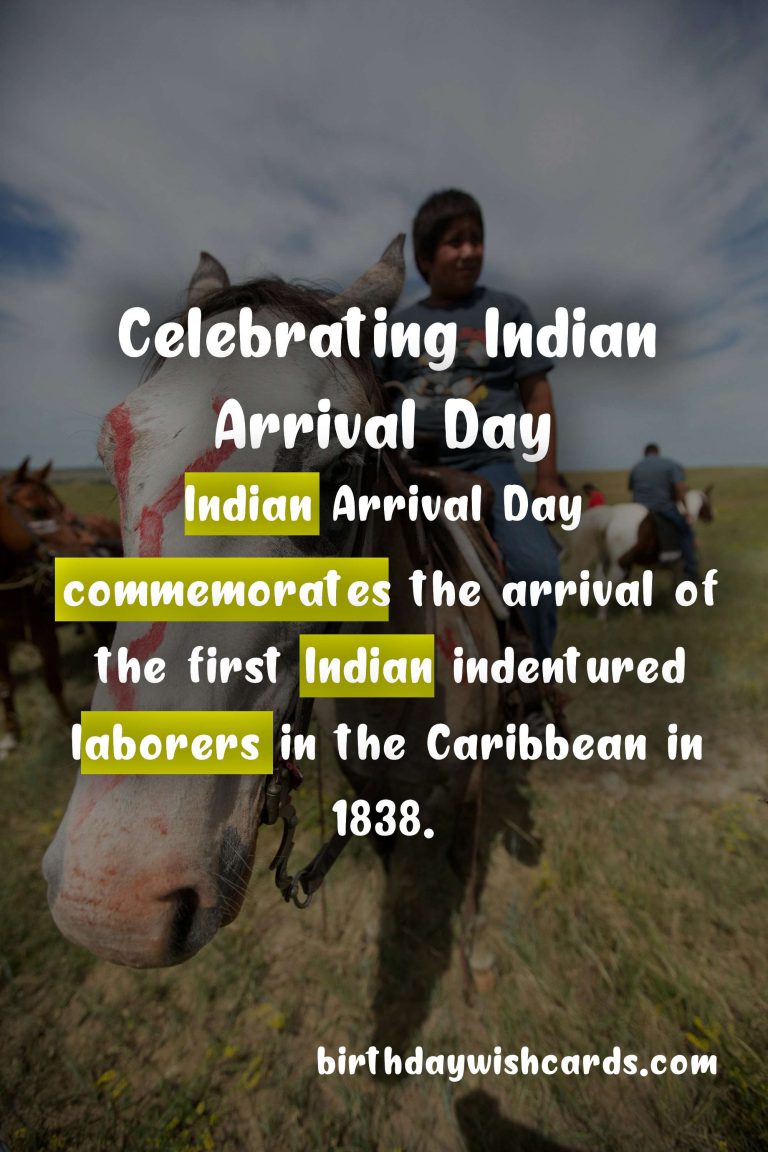Celebrating Indian Arrival Day
May 30th holds special significance for Indians around the world, commemorating the arrival of the first Indian indentured laborers to the Caribbean in 1838. Known as Indian Arrival Day, this occasion is dedicated to reflection, celebration, and honoring the rich heritage and lasting contributions of the Indian community across the Caribbean and beyond.
This article explores the origins and history of Indian Arrival Day, its cultural and social importance, the ways it is commemorated globally, and the enduring legacy of the Indian indentured laborers who helped shape the Caribbean’s vibrant multicultural landscape.
The History of Indian Arrival Day
Indian Arrival Day traces its roots to May 30, 1838, when the first ship carrying Indian indentured laborers docked in Trinidad and Tobago. These laborers were brought by British colonial authorities to address the labor shortage following the abolition of slavery in the 1830s. Over the next several decades, more than 400,000 Indians were transported—primarily to Caribbean countries such as Trinidad, Guyana, and Suriname—under the indenture system.
This migration profoundly shaped the Caribbean’s demographic, cultural, religious, and culinary landscapes, embedding Indian influences into the region’s identity. Despite promises of better opportunities, indentured laborers faced harsh realities, including inadequate housing, low wages, and systemic discrimination.
Yet, through resilience and determination, these pioneers built new lives and laid the foundation for thriving Indian communities in the Caribbean today.





